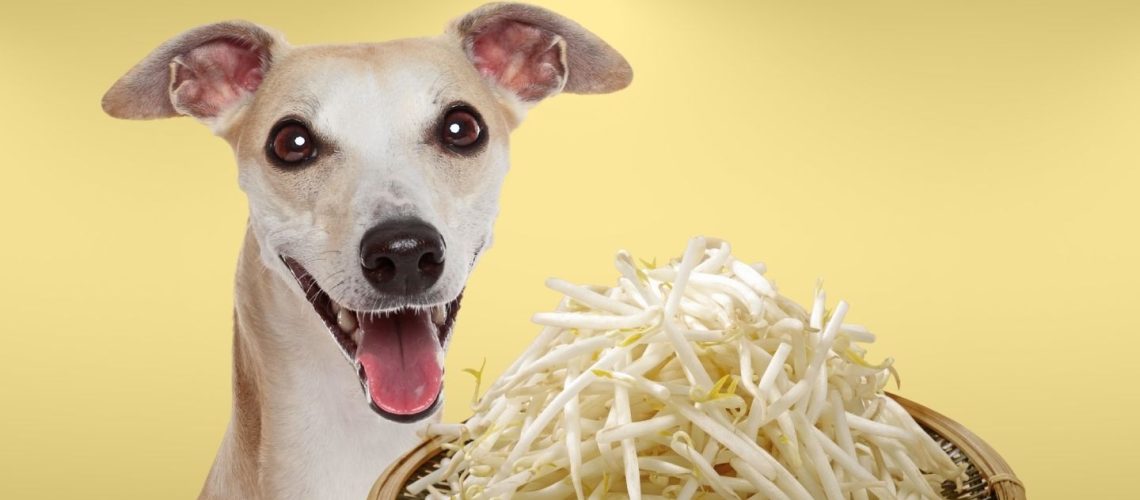Yes, dogs can eat bean sprouts, but there are some important things to consider before feeding them to your furry friend. Bean sprouts can provide nutritional benefits such as protein, fiber, and vitamins, but they may also pose potential risks, including gastrointestinal upset and harmful bacteria. To minimize these risks, it's essential to prepare bean sprouts correctly and serve them in moderation. As with introducing any new food to your dog's diet, always consult your veterinarian for guidance.
Nutritional Benefits of Bean Sprouts
Bean sprouts are a good source of protein, fiber, and vitamins, which can provide some health benefits for dogs. For example, protein is important for maintaining healthy muscles, while fiber can help support healthy digestion. Additionally, some vitamins found in bean sprouts, such as vitamin C, can help support a healthy immune system. The bean sprouts also strengthen the body to fight against liver and kidney diseases.
Potential Risks of Feeding Bean Sprouts to Dogs
While bean sprouts can provide some health benefits for dogs, it's important to keep in mind that they may also pose some risks. For example, bean sprouts can be difficult for dogs to digest, which can lead to gastrointestinal upset. Additionally, if bean sprouts are not cooked properly, they can harbor harmful bacteria, which can cause illness in dogs. Moreover, giving too many bean sprouts can make your dog gassy.
Serving Size for Dogs
If you do decide to feed bean sprouts to your dog, it's important to do so in moderation. As with any new food, it's best to introduce bean sprouts to your dog's diet gradually and in small amounts. A good starting point is to give your dog only a few bean sprouts at a time, and then monitor their reaction. If your dog tolerates the bean sprouts well, you can gradually increase the serving size over time. However, it's important to remember that bean sprouts should only be fed to your dog as a treat, and not as a substitute for their regular dog food.
Preparing Bean Sprouts for Dogs
Before feeding bean sprouts to your dog, it's important to ensure that they are prepared correctly in order to minimize potential risks.
Washing Bean Sprouts
Make sure to thoroughly wash the bean sprouts before feeding them to your dog, as this can help remove any dirt, pesticides, or bacteria that may be present.
Cooking Bean Sprouts
Cooking bean sprouts can help to kill any harmful bacteria and make them easier for your dog to digest. You can steam, boil, or sauté the bean sprouts, but avoid using any added oils, seasonings, or spices, as these can be harmful to dogs.
Serving Bean Sprouts Raw
If you choose to serve bean sprouts raw, make sure they are properly washed and consider chopping them into smaller pieces to make them easier for your dog to chew and digest.
Alternative Vegetables for Dogs
If your dog doesn't tolerate bean sprouts well or if you're looking for other nutritious vegetables to add to your dog's diet, consider these alternatives:
Carrots
Carrots are a good source of vitamins, minerals, and fiber, and they can be served raw or cooked.
Green Beans
Green beans provide vitamins, minerals, and fiber, and can be served cooked or raw, but avoid canned green beans with added salt.
Sweet Potatoes
Sweet potatoes are high in fiber, vitamins, and minerals, and can be cooked and mashed or cut into small pieces for your dog to enjoy.
Pumpkin
Pumpkin is a great source of fiber, vitamins, and minerals, and can be served cooked or as a puree.
Conclusion
While dogs can eat bean sprouts, it's important to consider the potential risks and ensure that they are prepared properly. Always introduce new foods to your dog's diet gradually and in moderation, and consult your veterinarian if you have any concerns about your dog's health or dietary needs.


























